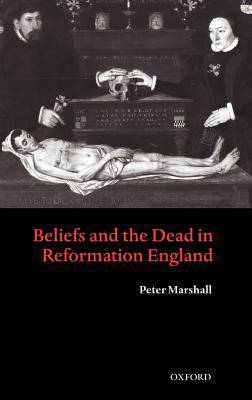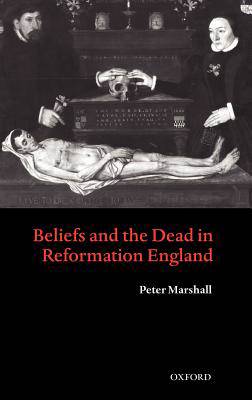
Bedankt voor het vertrouwen het afgelopen jaar! Om jou te bedanken bieden we GRATIS verzending (in België) aan op alles gedurende de hele maand januari.
- Afhalen na 1 uur in een winkel met voorraad
- In januari gratis thuislevering in België
- Ruim aanbod met 7 miljoen producten
Bedankt voor het vertrouwen het afgelopen jaar! Om jou te bedanken bieden we GRATIS verzending (in België) aan op alles gedurende de hele maand januari.
- Afhalen na 1 uur in een winkel met voorraad
- In januari gratis thuislevering in België
- Ruim aanbod met 7 miljoen producten
Zoeken
€ 135,45
+ 270 punten
Uitvoering
Omschrijving
This is the first comprehensive study of one of the most important aspects of the Reformation in England: its impact on the status of the dead. Protestant reformers insisted vehemently that between heaven and hell there was no 'middle place' of purgatory where the souls of the departed could be assisted by the prayers of those still living on earth. This was no remote theological proposition, but a revolutionary doctrine affecting the lives of all sixteenth-century English people, and the ways in which their Church and society were organized.
This book illuminates the (sometimes ambivalent) attitudes towards the dead to be discerned in pre-Reformation religious culture, and traces (up to about 1630) the uncertain progress of the 'reformation of the dead' attempted by Protestant authorities, as they sought both to stamp out traditional rituals and to provide the replacements acceptable in an increasingly fragmented religious world. It also provides detailed surveys of Protestant perceptions of the afterlife, of the cultural meanings of the appearance of ghosts, and of the patterns of commemoration and memory which became characteristic of post-Reformation England. Together these topics constitute an important case-study in the nature and tempo of the English Reformation as an agent of social and cultural transformation.
The book speaks directly to the central concerns of current Reformation scholarship, addressing questions posed by 'revisionist' historians about the vibrancy and resilience of traditional religious culture, and by 'post-revisionists' about the penetration of reformed ideas. Dr Marshall demonstrates not only that the dead can be regarded as a significant 'marker' of religious and cultural change, but that a persistent concern with their status did a great deal to fashion the distinctive appearance of the English Reformation as a whole, and to create its peculiarities and contradictory impulses.
This book illuminates the (sometimes ambivalent) attitudes towards the dead to be discerned in pre-Reformation religious culture, and traces (up to about 1630) the uncertain progress of the 'reformation of the dead' attempted by Protestant authorities, as they sought both to stamp out traditional rituals and to provide the replacements acceptable in an increasingly fragmented religious world. It also provides detailed surveys of Protestant perceptions of the afterlife, of the cultural meanings of the appearance of ghosts, and of the patterns of commemoration and memory which became characteristic of post-Reformation England. Together these topics constitute an important case-study in the nature and tempo of the English Reformation as an agent of social and cultural transformation.
The book speaks directly to the central concerns of current Reformation scholarship, addressing questions posed by 'revisionist' historians about the vibrancy and resilience of traditional religious culture, and by 'post-revisionists' about the penetration of reformed ideas. Dr Marshall demonstrates not only that the dead can be regarded as a significant 'marker' of religious and cultural change, but that a persistent concern with their status did a great deal to fashion the distinctive appearance of the English Reformation as a whole, and to create its peculiarities and contradictory impulses.
Specificaties
Betrokkenen
- Auteur(s):
- Uitgeverij:
Inhoud
- Aantal bladzijden:
- 356
- Taal:
- Engels
Eigenschappen
- Productcode (EAN):
- 9780198207733
- Verschijningsdatum:
- 26/09/2002
- Uitvoering:
- Hardcover
- Formaat:
- Genaaid
- Afmetingen:
- 167 mm x 240 mm
- Gewicht:
- 644 g

Alleen bij Standaard Boekhandel
+ 270 punten op je klantenkaart van Standaard Boekhandel
Beoordelingen
We publiceren alleen reviews die voldoen aan de voorwaarden voor reviews. Bekijk onze voorwaarden voor reviews.









